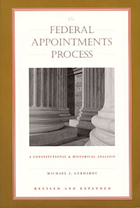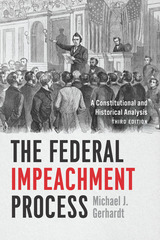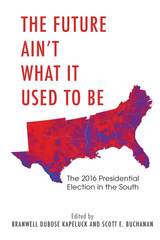7 start with F start with F

A provocative new perspective on presidential power.
Border walls, school bathrooms, student loans, gun control, diversity, abortion, climate change—today, nothing seems out of reach for the president's pen. But after all the press releases, ceremonies, and speeches, shockingly little gets done. The American presidency promises to solve America's problems, but presidents' unilateral solutions are often weak, even empty.
Kenneth Lowande argues this is no accident. The US political system is not set up to allow presidents to solve major policy problems, yet it lays these problems at their doorstep, and there is no other elected official better positioned to attract attention by appearing to govern. Like any politician, presidents are strategic actors who seek symbolic wins. They pursue executive actions, even when they know that these will fail, because doing so allows them to put on a compelling show for key constituencies. But these empty presidential actions are not without their costs: they divert energy from effective government—and, over time, undermine public trust. Drawing on thousands of executive actions, news coverage, interviews, and presidential archives, False Front shows that the real root of presidential power is in what presidents can get away with not doing.

—Aaron D. Purcell, author of Arthur Morgan: A Progressive Vision for American Reform
As the roaring twenties turned into the depressed thirties, southern farmers, far removed from the urban prosperity Americans had enjoyed during the 1920s heyday, found already difficult farming conditions greatly intensified by the onset of the Great Depression. Agricultural incompetence plagued the rural South through the misuse of land, depletion of natural resources, and a system of single-crop farming that failed to adequately provide for growing families on small farms, especially in the cotton-producing Southeast. Poverty and desperation came to define the farming communities of the rural South, both in reality and in Americans’ collective conscious.
In The Farm Security Administration and Rural Rehabilitation in the South, Charles Kenneth Roberts traces the administrative and political history of the Farm Security Administration (FSA) and reconciles the administration’s goals with Franklin D. Roosevelt’s overall vision for the New Deal. Roberts takes a grassroots approach to dissecting the FSA’s history. While other studies have focused on FSA photography or community building, or even policy making in terms of top-down government directives, Roberts focuses on the people and state governments who faced an immediate need to aid southern farmers within their own borders and to boost their states’ crumbling agricultural economic bases. Roberts focuses on rural rehabilitation as a key aspect of the FSA and defines the agency’s legacy not in terms of its failures but rather in terms of an idealistic program whose modest successes were ultimately too few to effect real change for southern farmers.
Though Roosevelt failed to adequately recognize the plight of the southern farmer and political infighting hindered many of the administration’s goals, the creation of the FSA stands as one of the first efforts to provide sustained relief to struggling southern farmers. In light of other federal programs of the era, the FSA may seem like a mere footnote to the New Deal outside of its small but revered photography program. But, as Roberts shows, the FSA’s legacy has endured to the present day.
Charles Kenneth Roberts is a lecturer in history at Georgia Perimeter College. His articles have appeared in the Alabama Review, Southern Historian, and Agricultural History.

Michael J. Gerhardt includes each U.S. president’s performance record regarding appointments, accounts of virtually all the major confirmation contests, as well as discussion of significant legal and constitutional questions raised throughout U.S. history. He also analyzes recess appointments, the Vacancies Act, the function of nominees in the appointment process, and the different treatment received by judicial and nonjudicial nominations. While discussing the important roles played by media and technology in federal appointments, Gerhardt not only puts particular controversies in perspective but also identifies important trends in the process, such as how leaders of different institutions attempt to protect—if not expand—their respective prerogatives by exercising their authority over federal appointments. Employing a newly emerging method of inquiry known as “historical institutionalism”—in which the ultimate goal is to examine the development of an institution in its entirety and not particular personalities or periods, this book concludes with suggestions for reforms in light of recent controversies springing from the longest delays in history that many judicial nominees face in the Senate.
Gerhardt’s intensive treatment of the subject will be of interest to students and scholars of political science, government, history, and legal studies.

For more than twenty years, The Federal Impeachment Process has served as the most complete analysis of the constitutional and legal issues raised in every impeachment proceeding in American history. Impeachment, Michael J. Gerhardt shows, is an inherently political process designed to expose and remedy political crimes—serious breaches of duty or injuries to the Republic. Subject neither to judicial review nor to presidential veto, it is a unique congressional power that involves both political and constitutional considerations, including the gravity of the offense charged, the harm to the constitutional order, and the link between an official’s misconduct and duties. For this third edition, Gerhardt updates the book to cover cases since President Clinton, as well as recent scholarly debates. He discusses the issues arising from the possible impeachment of Donald Trump, including whether a sitting president may be investigated, prosecuted, and convicted for criminal misconduct or whether impeachment and conviction in Congress is the only way to sanction a sitting president; what the “Emoluments Clause” means and whether it might provide the basis for the removal of the president; whether gross incompetence may serve as the basis for impeachment; and the extent to which federal conflicts of interest laws apply to the president and other high ranking officials.
Significantly updated, this book will remain the standard work on the federal impeachment process for years to come.

Forts Henry and Donelson portray the tapestry of war and society in the upper southern heartland of Tennessee and Kentucky after key Union victories in February 1862. Those victories, notes Benjamin Franklin Cooling, could have delivered the decisive blow to the Confederacy in the West and ended the war in that theater. Instead, what followed was terrible devastation and bloodshed that embroiled soldier and civilian alike. Cooling compellingly describes a struggle that was marked not only by the movement of armies and the strategies of generals but also by the rise of guerrilla bands and civil resistance. It was, in part, a war fought for geography—for rivers and railroads and for strategic cities such as Nashville, Louisville, and Chattanooga. But it was also a war for the hearts and minds of the populace. “Stubborn civilian opposition to Union invaders,” Cooling writes, “prompted oppressive military occupation, subversion of civil liberties, and confiscation of personal property in the name of allegiance to the United States—or to the Confederacy, for that matter, since some Unionist southerners resented Confederate intrusion fully as much as their secessionist neighbors opposed Yankee government.” In exploring the complex terrain of “total war” that steadily engulfed Tennessee and Kentucky, Cooling draws on a huge array of sources, including official military records and countless diaries and memoirs. He makes considerable use of the words of participants to capture the attitudes and concerns of those on both sides. The result is a masterful addition to Civil War literature that integrates the military, social, political, and economic aspects of the conflict into a large and endlessly fascinating picture.

From Chinese Exclusion to Guantánamo Bay also provides a larger context for understanding problems resulting from the exercise of plenary power. Saito explains how the rights of individuals and groups deemed Other by virtue of race or national origin have been violated under both the Constitution and international law. The differing treatment of José Padilla and John Walker Lindh - both Americans accused of terrorism - provides an example of such disparate approaches. Such executive actions and their sanction by Congress and the judiciary, Saito argues, undermine not just individual rights but the very foundations of our national security - democracy and the rule of law.
From Chinese Exclusion to Guantánamo Bay will interest readers concerned with the historical background of constitutional protection in times of war and peace and will provide fascinating new material for scholars, teachers, and students of law, history, and ethnic studies

The Future Ain’t What It Used to Be details how the 2016 presidential election developed in the eleven states that make up the South. Preeminent scholars of Southern politics analyze this momentous election, including the issues that drove southern voters, the nomination process in early 2016, and where the region may be headed politically in the Trump era. In addition, each state chapter includes analysis on notable congressional races and important patterns within the states.
This new edited volume will be an important tool for scholars, and also journalists and political enthusiasts seeking a deeper understanding of contemporary southern electoral politics.
READERS
Browse our collection.
PUBLISHERS
See BiblioVault's publisher services.
STUDENT SERVICES
Files for college accessibility offices.
UChicago Accessibility Resources
home | accessibility | search | about | contact us
BiblioVault ® 2001 - 2024
The University of Chicago Press









